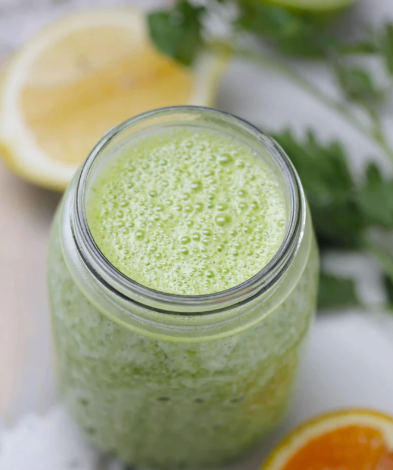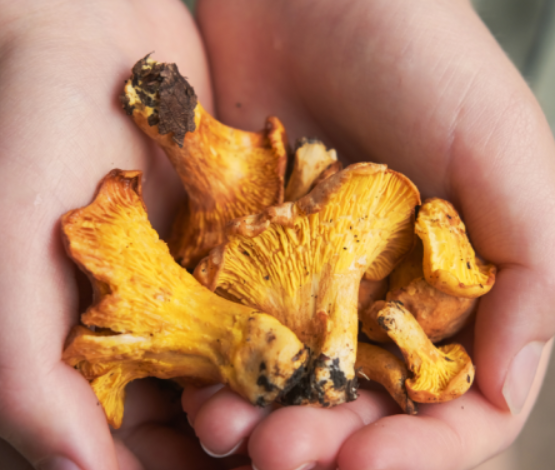
The Great Oil Debate: What You Need to Know
Lately, there’s been a lot of buzz about oils and their role in a healthy diet. Is oil a nutritious addition to our meals, or is it a processed, high-fat ingredient we should avoid? The truth is, this debate is not a new one. There’s been confusion surrounding oils for years, and I’ve received countless questions about their health benefits. So, I teamed up with Crazy Sexy Nutrition Director, Jen Reilly, RD, to tackle the issue and clear things up for you.
You’ve probably heard some health advocates suggest cutting out all oils from your diet, including even the healthy extra virgin olive oil that’s known for promoting heart health and lowering cholesterol. Today, we’ll dive into some of the main criticisms surrounding oils, discuss their potential benefits, and help you make an informed decision about what’s best for you.
Understanding the Types of Fats in Plant Oils
Before we jump into the debate, let’s take a quick look at the different types of fats found in plant oils:
- Trans Fats (Avoid completely): These fats are created by hydrogenating oils, making them more stable on the shelf but at the cost of your health. They raise bad cholesterol (LDL) while lowering good cholesterol (HDL) and have been linked to heart disease.
- Saturated Fats (Use sparingly): These fats have been considered unhealthy, especially for heart health. However, not all saturated fats are the same. For example, the saturated fat in coconut oil doesn’t increase heart disease risk the same way saturated fats from animal products do.
- Monounsaturated Fats: Found in foods like avocados, nuts, and olive oil, these fats have been shown to lower cholesterol and support heart health. They also have anti-inflammatory effects and may even help reduce belly fat.
- Polyunsaturated Fats: These fats, present in oils like sunflower, safflower, and corn oil, include the essential omega-3 fats. Omega-3s support heart health, reduce the risk of stroke, and are crucial for brain health.
Now that we’ve covered the basics of plant oils, let’s explore four of the most common criticisms about oils.
Criticism #1: Olive Oil Constricts Blood Vessels
One of the earliest concerns about olive oil surfaced in a 2000 study by Dr. Vogel, a heart specialist, which found that consuming olive oil could lead to blood vessel constriction. The study showed a reduction in blood flow by 34% after consuming olive oil, compared to no constriction with salmon.
While this raised alarms, the issue isn’t as significant as it seemed. When combined with antioxidant-rich foods like vegetables or even red wine vinegar (hello, salad dressing!), the constriction effect of olive oil is significantly reduced. Plus, extra virgin olive oil, which is higher in antioxidants, is the best choice for you. So, unless your diet lacks sufficient antioxidants, this concern is nothing to worry about.
Criticism #2: Olive Oil Has Too Much Omega-6
There’s a concern that olive oil has a high ratio of omega-6 to omega-3 fatty acids, which could upset the balance of these essential fats in the body. Ideally, we want a 4:1 ratio of omega-6 to omega-3 to reduce inflammation and support overall health. While it’s true that olive oil contains more omega-6s than omega-3s, the amount is relatively small compared to other sources of omega-6s like processed foods, poultry, and eggs.
The key is balance. While omega-6s are essential, they should come from healthier sources. Be sure to also include omega-3-rich foods like flaxseed, chia seeds, and walnuts in your diet to maintain a good balance between these fats.
Criticism #3: Vegetable Oils Are Unhealthy at High Heat
When oils are exposed to high temperatures for too long, they can break down and form harmful compounds, such as lipid peroxides and aldehydes, which may be linked to cancer. Polyunsaturated oils like flax, soybean, and sunflower are most prone to this oxidative damage, so they aren’t the best choices for high-heat cooking.
But don’t worry—you don’t have to give up cooking with oils altogether! Olive, avocado, and grapeseed oils are more stable at high heat. These oils are rich in monounsaturated fats, which have higher smoke points, making them perfect for stir-fries, grilling, and sautéing. Extra virgin olive oil, while packed with antioxidants, should be reserved for lower-heat cooking or used in salads.
Criticism #4: Oils Cause Weight Gain
Since oils are pure fat, which contains 9 calories per gram (compared to just 4 calories for carbs or protein), it’s easy to assume they contribute to weight gain. However, this isn’t necessarily true. When used in moderation, oils can actually make meals more satisfying and help control hunger. In fact, including healthy fats in your diet can help you stay fuller longer and reduce cravings.
Coconut oil, in particular, is known for its medium-chain triglycerides (MCTs), which are quickly used by the liver for energy and are rarely stored as fat. MCTs can even boost metabolism, helping you burn more calories throughout the day.
Why Oils Can Be Beneficial
Despite some of the criticisms, there are plenty of reasons to include oils in your diet:
- Flavor and Satisfaction: Oils can enhance the taste and texture of meals, especially in plant-based dishes. A little goes a long way in making your meals more satisfying.
- Balancing Nutrients: While whole plant fats like nuts and avocados are great, it can sometimes be hard to get enough. Adding oils to your meals helps ensure you get the essential fatty acids your body needs.
- Concentrated Nutrition: Oils from nuts, seeds, olives, and avocados are rich in vitamin E, polyphenols, and omega-3 fatty acids, all of which support heart health and help prevent chronic diseases.
To Oil or Not to Oil?
So, should you include oils in your diet? Here’s the bottom line: While oils are not a necessity for a balanced plant-based lifestyle, they can certainly enhance your meals when used in moderation. They offer flavor, nutrition, and satiety, which makes them a valuable addition for many people.
That being said, the choice is personal. If you feel better without oils, that’s totally fine! Just make sure to get your healthy fats from whole sources like nuts, seeds, and avocados. If you decide to use oils, opt for those high in monounsaturated fats like olive, avocado, and grapeseed oils, and save polyunsaturated oils for raw dishes or dressings.
Remember, what works best for your body is what matters most, so trust yourself and enjoy your food!






